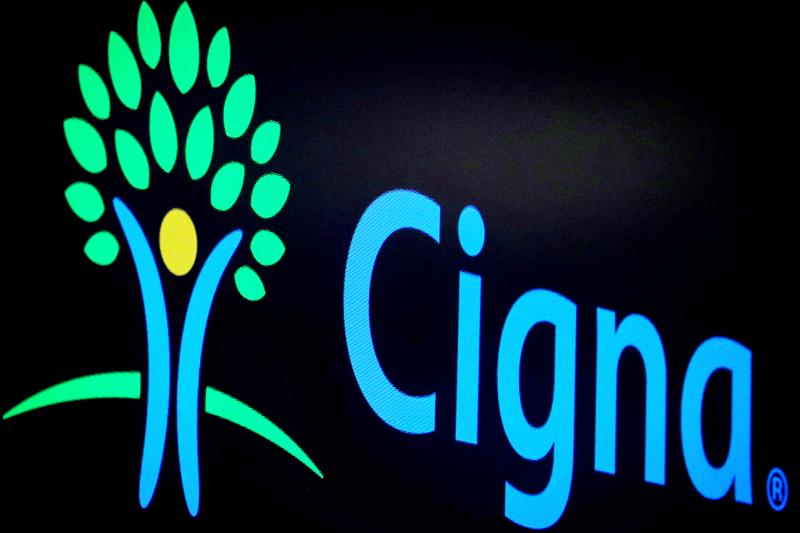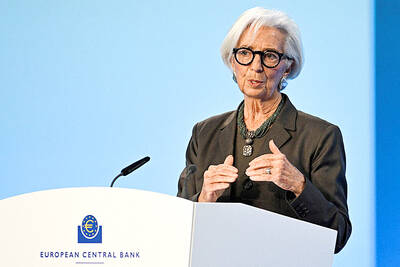US insurer Chubb Ltd has agreed to buy health insurer Cigna Corp’s life, accident and supplemental benefits businesses in Asia-Pacific and Turkey for US$5.75 billion in cash, both insurers said, marking the latest consolidation in Asia’s insurance sector.
In a statement issued on Thursday, Chubb said it is to acquire Cigna’s accident, health and life insurance business in Taiwan, South Korea, New Zealand, Thailand, Hong Kong and Indonesia, in addition to Cigna’s 51 percent stake in a joint venture in Turkey.
“The addition of Cigna’s business, which is overwhelmingly accident and health, will rebalance our global portfolio towards this important region,” Chubb CEO Evan Greenberg said.

Photo: Reuters
Chubb said the acquisition should boost Asia’s share of its global portfolio to US$7 billion from about US$4 billion in net premiums written, representing about 20 percent of the company’s total business, excluding China.
The transaction comes at a time of a shakeup in the insurance sector in key markets.
In August, HSBC Holdings agreed to acquire French insurer Axa’s Singapore assets for US$575 million.
Last year, Singapore Life, an upstart insurer backed by investors including buyout group TPG, acquired the Singapore business of British insurer Aviva for nearly US$2 billion as it expands in Southeast Asia.
Cigna said Chubb is acquiring Cigna’s business in South Korea and would to continue to operate it under the LINA Korea brand.
Cigna plans to focus on its global health services portfolio, as well as local market services in the Middle East, Europe, Hong Kong, Singapore and its joint ventures in Australia, China and India.
The deal is not subject to a financing condition, and Cigna expects to realize about US$5.4 billion of net after-tax proceeds.

European Central Bank (ECB) President Christine Lagarde is expected to step down from her role before her eight-year term ends in October next year, the Financial Times reported. Lagarde wants to leave before the French presidential election in April next year, which would allow French President Emmanuel Macron and German Chancellor Friedrich Merz to find her replacement together, the report said, citing an unidentified person familiar with her thoughts on the matter. It is not clear yet when she might exit, the report said. “President Lagarde is totally focused on her mission and has not taken any decision regarding the end of

French President Emmanuel Macron told a global artificial intelligence (AI) summit in India yesterday he was determined to ensure safe oversight of the fast-evolving technology. The EU has led the way for global regulation with its Artificial Intelligence Act, which was adopted in 2024 and is coming into force in phases. “We are determined to continue to shape the rules of the game... with our allies such as India,” Macron said in New Delhi. “Europe is not blindly focused on regulation — Europe is a space for innovation and investment, but it is a safe space.” The AI Impact Summit is the fourth

CONFUSION: Taiwan, Japan and other big exporters are cautiously monitoring the situation, while analysts said more Trump responses ate likely after his loss in court US trading partners in Asia started weighing fresh uncertainties yesterday after President Donald Trump vowed to impose a new tariff on imports, hours after the Supreme Court struck down many of the sweeping levies he used to launch a global trade war. The court’s ruling invalidated a number of tariffs that the Trump administration had imposed on Asian export powerhouses from China and South Korea to Japan and Taiwan, the world’s largest chip maker and a key player in tech supply chains. Within hours, Trump said he would impose a new 10 percent duty on US imports from all countries starting on

STRATEGIC ALLIANCE: The initiative is aimed at protecting semiconductor supply chain resilience to reduce dependence on China-dominated manufacturing hubs India yesterday joined a US-led initiative to strengthen technology cooperation among strategic allies in a move that underscores the nations’ warming ties after a brief strain over New Delhi’s unabated purchase of discounted Russian oil. The decision aligns India closely with Washington’s efforts to build secure supply chains for semiconductors, advanced manufacturing and critical technologies at a time when geopolitical competition with China is intensifying. It also signals a reset in relations following friction over energy trade and tariffs. Nations that have joined the Pax Silica framework include Japan, South Korea, the UK and Israel. “Pax Silica will be a group of nations